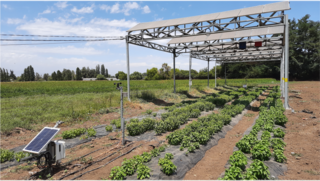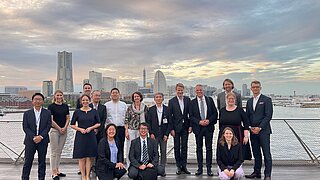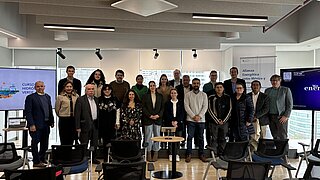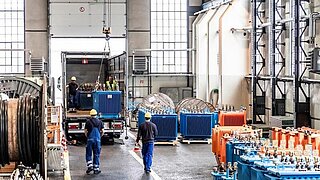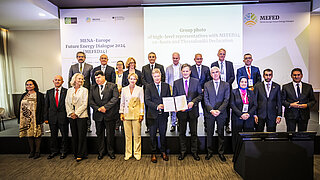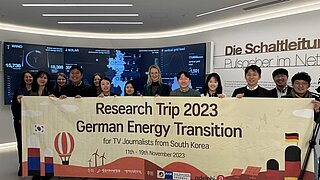Advancing bilateral trade in hydrogen and related technologies
The USA-Germany Climate and Energy Partnership is actively encouraging private sector collaboration on trade in low carbon hydrogen, its derivatives and related technologies to support national and global market ramp-up. Direct contact between the actors in the market has helped to advance the topic of hydrogen trade.
Background
The US has long been one of the global leaders in hydrogen production and has great potential to switch production to green (or low carbon) hydrogen. The USA-German Energy and Climate Partnership has worked on the topic from day one and set up an expert working group. While not initially part of the agenda, recent developments have significantly increased private sector interest in hydrogen trade. These include the adoption of the Inflation Reduction Act and award of Hydrogen Hubs in the US and the adoption of a dedicated import strategy and respective support schemes on the German side. These developments present a unique opportunity for working together on hydrogen related projects and exploring the potential for importing hydrogen derivatives from the US.
Challenge and Goal
In addition to developing national hydrogen ecosystems, international cooperation is key for a global market ramp-up. While Germany has made it clear it intends to import large shares of its projected demands, the US are well positioned to become an exporter of hydrogen (derivatives).
However, developing hydrogen trade relations is a longer-term process that requires close coordination among private market actors, but also between the private sector and policymakers. The Climate and Energy Partnership seeks to facilitate that dialogue, collect and share information and put the topic on the agenda in both countries.
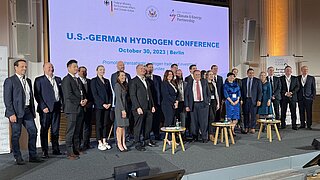
Action taken
Over the past couple of years, several measures have been initiated and implemented within the Partnership, starting with an assessment of US green hydrogen production potential as early as 2021. Expert exchanges were held on several regulatory issues, including hydrogen certification and safety. A major step was the organisation of the first ever German-American Hydrogen Conference in Berlin in autumn 2023, focusing primarily on trade. Among the roughly 200 participants was a large business delegation from the US, underlining private sector interest in exploring trade opportunities. One outcome of the conference was the setup of a bilateral B2B Task Force, led by business associations Center for Houston’s Future and German Chambers of Commerce (DIHK). The Task Force is a self-organized initiative within the partnership that coordinates closely with the Working Group, e.g. in separate B2G meetings.
Impact
Germany will need significant imports for its projected national hydrogen demand. At the same time, German companies are also among the leading providers for hydrogen related technologies. The measures taken within the Partnership establish platforms for permanent information exchange to make sure US potential for hydrogen exports is seen and developed, German companies are informed about business opportunities in the US and trade barriers are actively identified and communicated.
